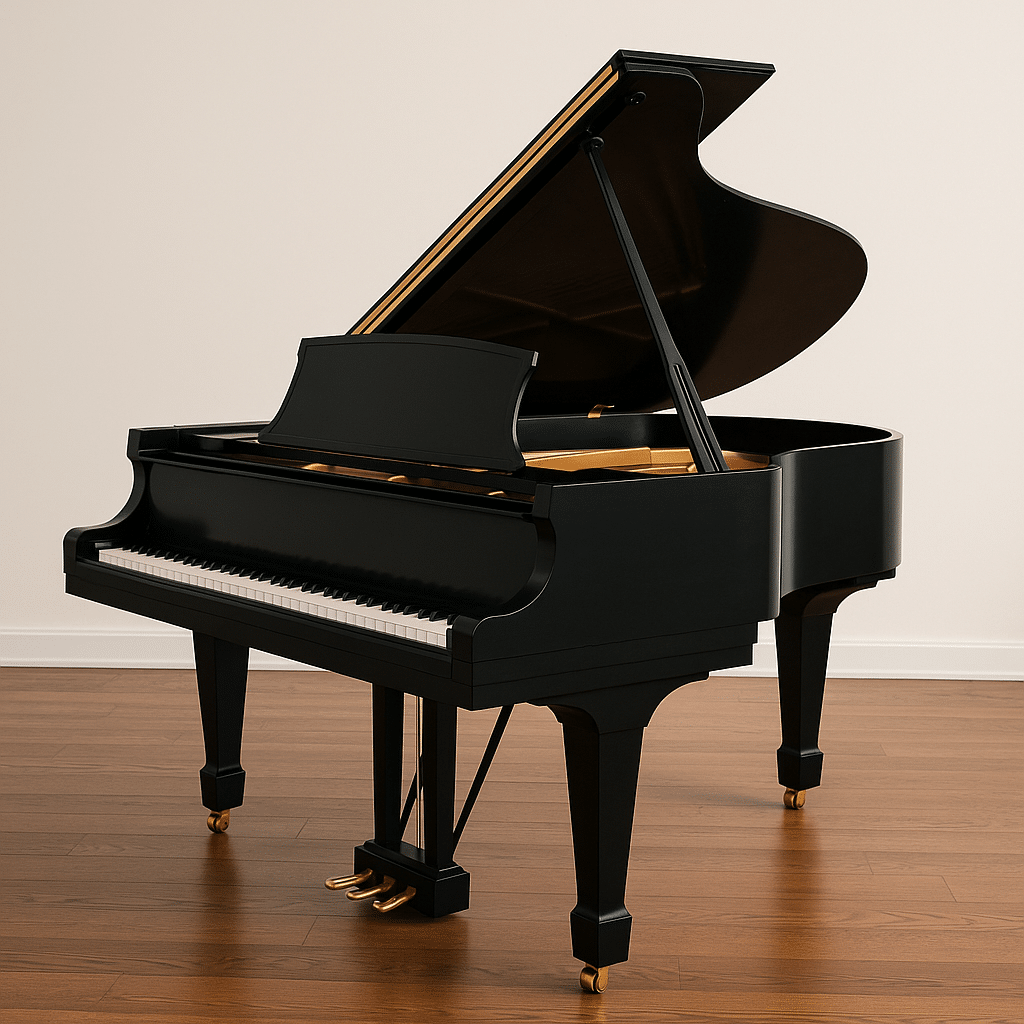If you’re looking to donate a piano, you’re not alone—and you’re doing a beautiful thing. Pianos can be a cherished gift to schools, churches, nonprofits, and families who can’t afford an instrument but would deeply benefit from it. Whether you’re downsizing, handling an estate, or making space, here’s how to donate a piano responsibly, safely, and meaningfully.
Step 1: Assess Your Piano’s Condition
Before reaching out to any organization, ask yourself:
-
Does it hold a tune?
-
Is it free of major cosmetic or structural damage?
-
Can it be moved without significant cost or danger?
Tip: Most donation centers only accept pianos in good working condition. If yours is damaged, consider repurposing or recycling options (more on that below).
Step 2: Prepare Photos and Information
To streamline the process, gather the following:
-
Brand and model
-
Approximate age
-
Serial number (often found inside near the strings or soundboard)
-
A few clear photos
-
Dimensions and weight (estimate is fine)
-
Location and access (stairs? first floor? elevator?)
Tip: Be honest about condition and access. This helps everyone avoid surprise moving challenges.
Step 3: Reach Out to Organizations
Here’s a list of organizations and types of places that accept piano donations. Some will pick up the instrument; others will ask you to arrange delivery.
1. Beethoven Foundation
Accepts donations of acoustic pianos in good condition and gives them to families and music organizations in need.
-
Website: beethovenfoundation.com
2. The Piano Project (Pianos for People)
Focuses on providing pianos and lessons to low-income families, particularly in Missouri and Illinois.
-
Website: pianosforpeople.org
3. Keys 4/4 Kids
Refurbishes donated pianos and uses proceeds from piano sales to support arts education. Available in select states.
-
Website: keys44kids.org
4. The Mr. Holland’s Opus Foundation
While they focus more on band instruments, they occasionally place pianos with underserved schools. Worth contacting directly.
-
Website: mhopus.org
5. Harmony Project
Offers music education to children in underserved communities. Local chapters may accept piano donations.
-
Website: harmony-project.org
6. Local Churches, Synagogues, or Mosques
Many places of worship welcome instrument donations, especially if they host music programs.
7. Schools and Music Teachers
Public and private schools (particularly charter or arts-focused) may need instruments. Start with the music department or PTA.
8. Senior Centers or Assisted Living Facilities
Pianos provide joy and comfort in group settings. Ask to speak to their recreation or activities coordinator.
9. Community Theaters
Small theaters often welcome piano donations for productions and rehearsals. Try searching for “community theaters” near me if you don’t know of any in your area.
10. Facebook Groups and Buy Nothing Communities
Look for local “Buy Nothing” or “Freecycle” groups. You might find a piano teacher, young musician, or family who would treasure the gift. Facebook marketplace is another alternative, but be weary of scams!
11. Habitat for Humanity ReStores
Select locations may accept upright pianos in good condition, especially if they have a furniture resale component.
-
Website: habitat.org/restores
12. Craigslist and Nextdoor (Free Section)
List the piano with good photos and a clear description. Be upfront about condition and moving logistics.
Step 4: Plan for Transport
Pianos are heavy, delicate, and awkward to move. Don’t underestimate the cost or risk of damage. Some options:
-
Hire a piano mover (more expensive, but safest)
-
Ask the recipient if they handle pickup
-
Use a local moving company with piano experience
Tip: Spinet and console pianos are easier to move than grands. Be clear about stairs, tight turns, and doorways.
Step 5: Get a Receipt for Tax Purposes
If you donate to a registered nonprofit, ask for a donation receipt. For IRS purposes, you may need an appraisal if the piano is worth more than $500.
What If No One Will Take It?
If your piano is no longer playable:
-
Contact a recycling company – some dismantle and recycle piano parts.
-
List it as a parts-only or art piece – artists and designers repurpose pianos into desks, bookshelves, or bars.
-
Post to Reverb or OfferUp – someone may want it for restoration or creative reuse.
Final Thought
Donating a piano isn’t always fast, but it can be deeply rewarding. You’re not just giving away an object—you’re giving someone the chance to learn, play, and express themselves.
If you have feedback, questions, or ideas for future articles or Information Hubs, please contact us. Your insights help us create valuable content.


